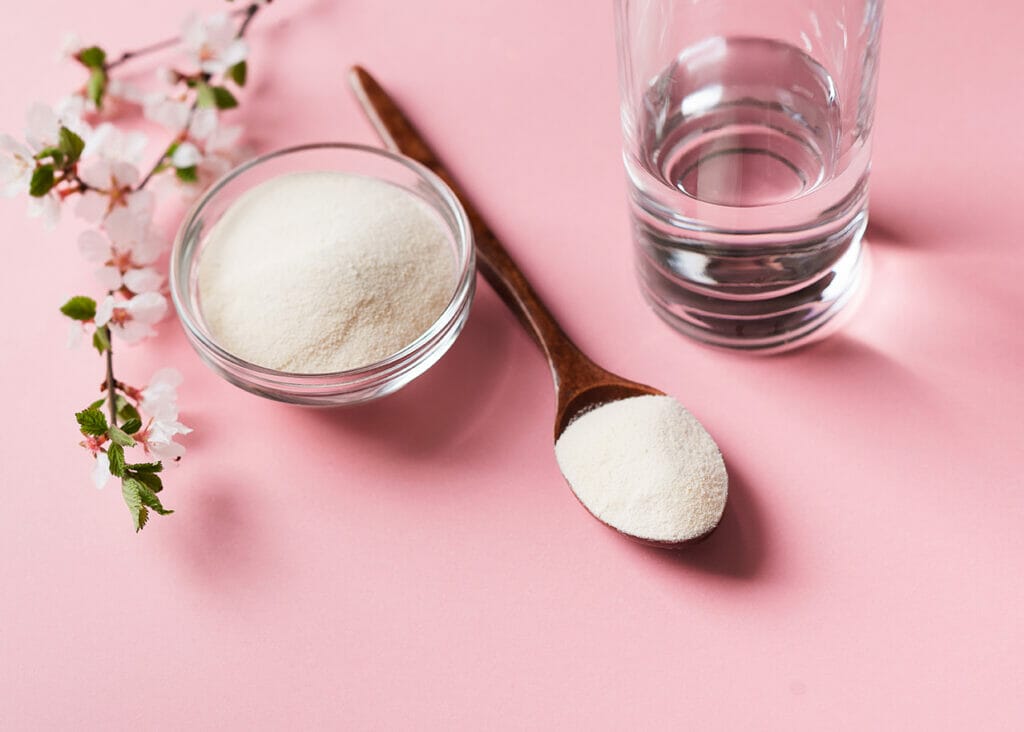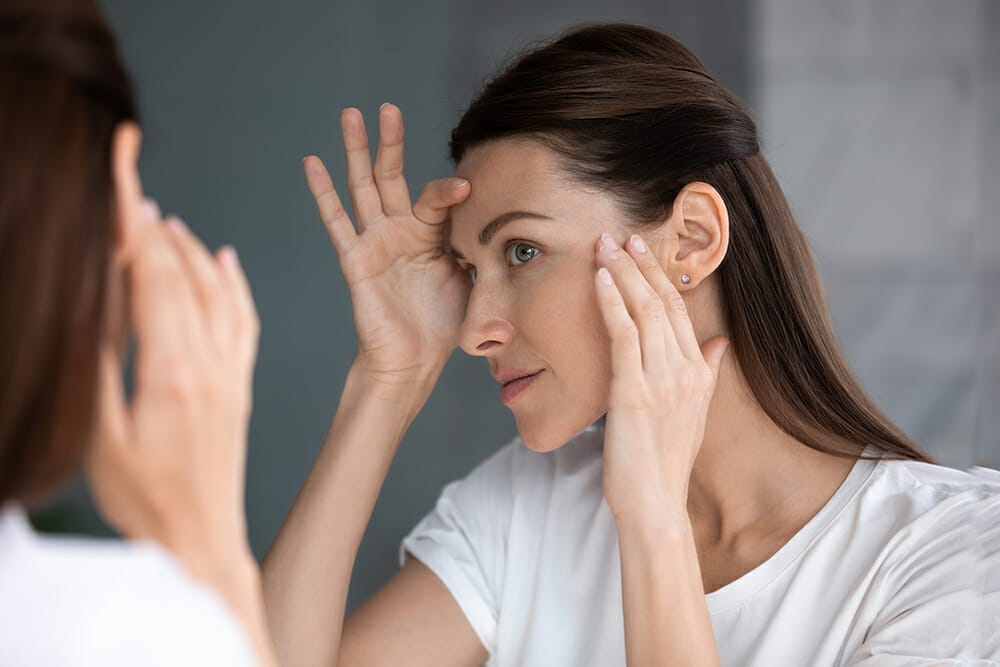Marine collagen – glow with the tide
Let’s face it, we all age and over time it comes along with its telltale companions: wrinkles, fine lines, and loss of the skin’s elasticity. For many, these subtle shifts can stir a feeling of trepidation, as they feel their youthful look is gradually fading away, line by line. An ageing face and body through the eyes of some indigenous cultures or ancient elders were viewed very differently. Those natural outward signs of what we now call ageing were regarded with reverence as a graceful transformation. They saw this as a natural journey and that our faces created beautiful tapestries, woven with many life stories of laughter, love, tears, experiences, and wisdom.
If only we could view the natural ageing of our bodies through those beautiful, wisdom-filled lenses of our ancestors instead of the images and messages we currently absorb from modern society that often paints a narrow and unrealistic picture of what ageing and beauty should look like.
The desire to preserve our youthful, radiant skin is one thread that unites generations throughout history. Looking after our skin and holding back the signs of ageing are centuries old, Cleopatra was said to have not only bathed regularly in milk, but she would also use a blend of milk and honey as a face mask. The ancient Egyptians used castor oil on skin, nails and hair and were renowned for their natural beauty rituals and skincare practices to help maintain a more youthful appearance.
As the saying goes, you don’t always know what you have got until it is gone, or in this case when it starts to diminish. A younger, plumper more youthful-looking skin is due to the levels of a substance called collagen.

What is collagen?
Collagen is the most abundant protein in the human body, it is the main structural protein found in the various connective tissues in the body such as skin, joints, muscles, bones, ligaments, tendons, and blood vessels. The word collagen comes from the Greek word ‘Kola’ which means gum and ‘gen’ refers to producing.
Collagen is a diverse family of proteins with around 28 members that are divided into various groups depending on what type of structure they form. [i] The most common types are –
- Type I – found in the skin, tendons, blood vessels, bones, and teeth.
- Type II – found mainly in the cartilage.
- Type III – found mainly in the organs and muscles of the body.
- Type IV – found in the extracellular basement membranes.
Type 1 collagen is the most abundant collagen in the body which gives structural support to various tissues especially, the skin which promotes firmness and elasticity. Think of it like scaffolding below the surface of the skin, plumping everything up and out. We naturally produce our own but as we age the ability to produce enough collagen declines (especially type I and III). This is due to the ageing of a type of cell called fibroblasts that are responsible for the production of collagen and other structural materials.[ii]
Can we help boost collagen naturally and slow down its decline?
The good news is that we do have the ability to slow down this inevitable loss by adopting healthier habits and improving our lifestyle choices which may help to create naturally plump, softer and more youthful-looking skin as well as supporting bone, muscle and joint health.
How quickly our skin and body start to show signs of ageing is dependent on many factors, such as
- Continuous duress/stress.
- Levels of sleep.
- Lifestyle choices/habits.
- Excess alcohol.
- Smoking.
- Excess sun exposure.
- Dehydration.
- A diet of highly processed foods.
- Environmental pollutants.
- Poor elimination of cellular and digestive wastes and more.
Many of the above factors can create a state called oxidative stress which occurs when there are too many unstable molecules called free radicals in the body and not enough antioxidants to quench them. This can lead to inflammation, tissue damage and collagen breakdown which can result in the typical signs of ageing such as wrinkles, sagging skin, stiffness and weaker muscles, arthritic joints, osteoporosis and more. There are also certain disorders and medical conditions that disrupt or damage collagen synthesis that can vary in severity and symptoms, however, the factors outlined above can exacerbate many health issues [iii]
For our body to synthesise collagen which some call the natural elixir of youth, it needs the raw materials such as antioxidants from our food to help its production. One vital antioxidant is vitamin C as it plays a major role in the maintenance of optimal levels of collagenic density in the skin’s dermis, thereby locally strengthening the collagen network. Vitamin C also aids in the activity of the fibroblast cells.[iv]
Introducing marine collagen which is derived from fish skin and scales, is a powerful natural way to stimulate type I and III collagen and may also be considered for osteoporosis prevention as type I collagen is the major constituent of bone mass. Research has shown that long-term supplementation of bioactive collagen peptides can help counteract losses in bone mineral density (BMD) in the spine.[v]

The benefits of supplementing with marine collagen
- Improving skin’s elasticity, tone and firmness
- Reducing the appearance of wrinkles.
- Helping maintain moisture levels, therefore improving skin hydration.
- Improving the strength and appearance of nails.
- May support hair regrowth and loss prevention.
- May support the regeneration and repair of skin cells, so helping with wound healing, and other damage to the skin.
- Supporting muscle repair and regeneration after exercise as well as supporting the rebuilding of muscle and increasing muscle strength.
Why choose marine collagen?
There are many reasons to choose marine collagen over an animal-derived source –
- Marine collagen is highly bioavailable due to the small peptides that are rapidly absorbed from the gastrointestinal tract. This allows for faster transportation of the peptides for the production of new collagen.
- Sustainability as marine collagen is sourced from fish by-products such as scales and skin.
- Type I dominance which is known for skin and beauty benefits.
- Personal beliefs, such as ethical or cultural considerations.
- Dietary choices such as pescatarians or individuals sensitive to bovine-derived collagen.
Whilst we can’t halt the march of ‘natural’ ageing, we each possess the ability to gently slow its course, allowing us to continue to glow with the inevitable ageing tides.
References
[i] https://en.wikipedia.org/wiki/Collagen
[ii] Varani J, Dame MK, Rittie L, Fligiel SE, Kang S, Fisher GJ, Voorhees JJ. Decreased collagen production in chronologically aged skin: roles of age-dependent alteration in fibroblast function and defective mechanical stimulation. Am J Pathol. 2006 Jun;168(6):1861-8. doi: 10.2353/ajpath.2006.051302. PMID: 16723701; PMCID: PMC1606623.
[iii] https://www.healthline.com/health/collagen-vascular-disease
[iv] Boyera N, Galey I, Bernard BA. Effect of vitamin C and its derivatives on collagen synthesis and cross-linking by normal human fibroblasts. Int J Cosmet Sci. 1998 Jun;20(3):151-8. doi: 10.1046/j.1467-2494.1998.171747.x. PMID: 18505499.
[v] Zdzieblik D, Oesser S, König D. Specific Bioactive Collagen Peptides in Osteopenia and Osteoporosis: Long-Term Observation in Postmenopausal Women. J Bone Metab. 2021 Aug;28(3):207-213. doi: 10.11005/jbm.2021.28.3.207. Epub 2021 Aug 31. PMID: 34520654; PMCID: PMC8441532.







